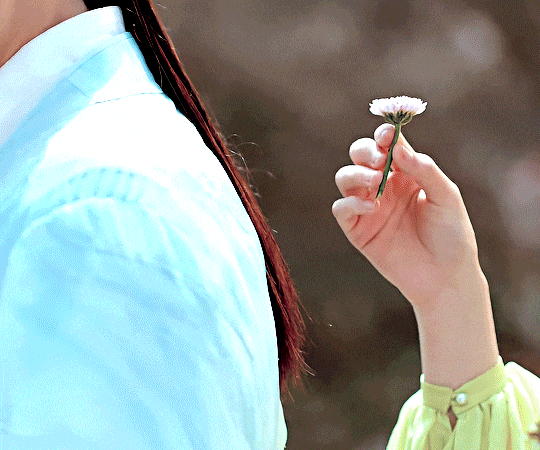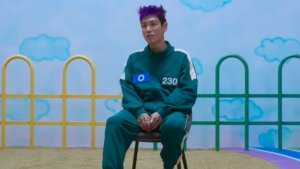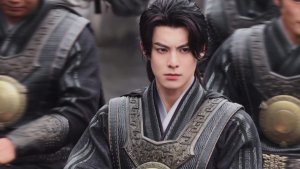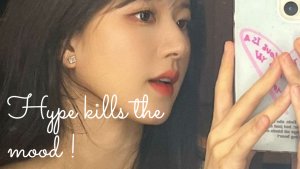 Hype Kills The Mood
Hype Kills The Mood

Hey there! I've been writing articles, and I realized I haven't told you much about myself. Let me give you a quick rundown. I'm in my early twenties, and even though society expects me to have it all together, I'm still trying to figure things out, one clumsy step at a time. I'm from India, and I've moved around a lot within the country. So, all my opinions and judgments are homegrown, shaped by the different places I've lived. Right now, I'm a student studying engineering, trying to make sense of this whole education thing – because apparently, I signed up for the ultimate brain workout.
For this article, all my information comes from the dramas I watch. They're like my little window, helping me make sense of out of things.
Also, I threw in some random fun stuff about me in this self-made template below—you know, just to shake off the yawns and add more to my not so helpful introduction.
 | ˚₊‧꒰ა Click ໒꒱ ‧₊˚ [Do try this and post it on the feeds] |  |
Talking more about this article, it’s based on my waggish experiences, essentially a collection of my "Wait, what?" moments—you know, when my brain does a double take and my reaction is basically, "Is this real?".
Also, I guess it can come across as if I am criticizing some aspects of their culture, because pointing things out can appear rude, but trust me, I just found all these things amusing and would never want that they shouldn’t exist or become the way I envision it.
‧₊˚✧Japan✧˚₊‧
Consider me a noob in this area; I read, but not a lot because I'm here trying to figure out how to make my college material the next big thing. However, as I delved into Japanese dramas, I couldn't help but notice the pervasive reading culture, be it manga, blogs, or novels. Writers have legit fan followings, and people are practically camping outside bookstores waiting for the next edition of their favorite piece. Some readers even get into trouble by reading the books as much as they can, risking their knees because they are on a low budget. High school students and working adults passionately collect their favorite books, establish fan clubs, and more. While some argue that the reading culture in India is not on the decline, I've yet to witness children eagerly awaiting a new book or saving up to buy one. Although I do have friends who are book enthusiasts, the overall reading culture isn't as prevalent.
 |  |
‧₊˚✧Drama Rec✧˚₊‧ ↪ Juhan Shuttai! (2016) |

Host clubs in Japanese dramas are so common. Club culture, at its core, is the same everywhere. You go there, have a nice drink, and enjoy yourself, but what makes host clubs distinct? First of all, every single drama I have watched on hosts has some legit touching stories with dudes straight up from heaven descended onto earth to heal us. It's like therapy, but with cocktails and glitter. Secondly, it's a controlled culture with a heavy emphasis on rules and tradition. I mean, it's sheer talent, if you ask me, because night culture isn't something you put a leash on. So, to explain the concept in simple words, it's a place where you can go and chat with your preferred host over drinks, and those drinks you buy help hosts earn their money. Hosts entertain female clients, primarily by flirting and offering attention. They've mastered the art of making you feel like the most important person in the room, all while looking sharp and sophisticated. You have to watch a few shows to understand this aspect of Japan a little more.
 | 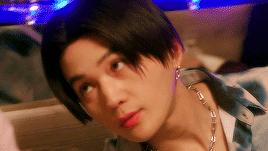 |
‧₊˚✧Drama Rec✧˚₊‧ ↪ Host Sozoku Shichaimashita (2023) |

Ah, the most shocking thing I have witnessed is the culture of calling each other by their last name unless and until you are close or the other person allows it. Here, when we ask for a name, it 101 percent means the first name, and if the meeting is formal, it’s the full name. I never introduced myself by my surname, so listen to this story:
Initially, I struggled to differentiate between Japanese first and last names. I wasn't aware that the surname preceded the first name. One funny incident happened while watching a romantic comedy. The male lead allowed the female lead to call him by his name, and now she’s blushing like a tomato.
And there I am, scratching my head like, "Why's she so ecstatic about his last name? Is this some secret ticket for, 'Hey, you can now join the family'?" Little did I know, it's just their quirky way of breaking the ice.
But don’t you all agree that it gives a new definition to close relationships? I find it very romantic and special.
 |  |
‧₊˚✧Drama Rec✧˚₊‧ ↪ Shanai Marriage Honey (2020) |

Is it surprising? Not really, considering job hunting often involves formal dressing and projecting a sophisticated image. Yet, what if your formal attire is predetermined, almost like a rule to be followed? That's what caught my attention: a sea of suits, nearly identical in their plain designs, worn by everyone heading to work or going for an interview. While recent dramas portray a different, more creatively expressive side of Japan, this is something I saw strongly prevalent in dramas. From my online research, I found that it's a cultural preference for them, emphasising a collective team identity over individuality. In the context of business attire, they opt for understated and monochromatic colors to maintain a professional and uniform appearance, mainly when it comes to dealing with customers. Newer companies are slowly changing these policies though. But to be honest, I like this idea: if the rules are stated out loud, it avoids conflict. I remember once during my school time, a teacher wore comfortable and casual clothes and faced so much backlash, with remarks like teachers should set an example. However, the situation became contentious because there were no explicit rules specifying what a teacher could or could not wear.
 | 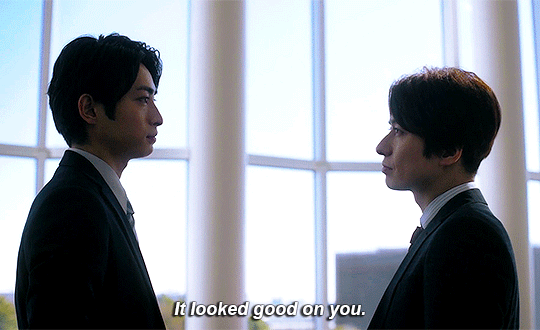 |
‧₊˚✧Drama Rec✧˚₊‧ ↪ Doki no Sakura (2019) |
 In the old days, lots of homes in Japan didn't have a bathtub. So, people would go to a public bath called "sentō" (銭湯, lit. "coin hot water") in their neighborhood. There, they could wash, relax in a tub, and chat with neighbors. Nowadays, most homes have their own baths, so there are fewer traditional public baths.
In the old days, lots of homes in Japan didn't have a bathtub. So, people would go to a public bath called "sentō" (銭湯, lit. "coin hot water") in their neighborhood. There, they could wash, relax in a tub, and chat with neighbors. Nowadays, most homes have their own baths, so there are fewer traditional public baths.
It was amusing to me because it’s not like a swimming area; it’s a legit bath with strangers. Well, it’s economical and fulfilling, but I would not feel comfortable at all. But having these setups helps a lot of people maintain their hygiene and save money. In the drama Kotaro Lives Alone, the public bath was such a saviour for our little Kotaro.
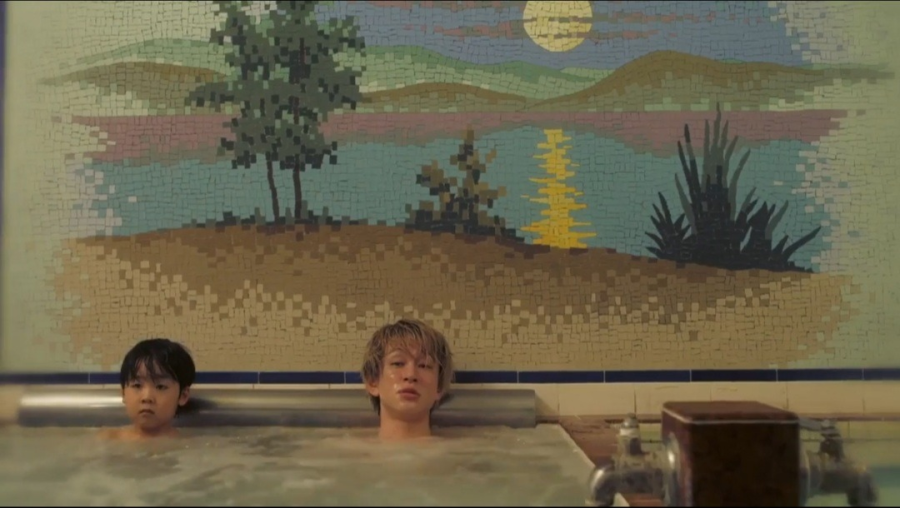 | 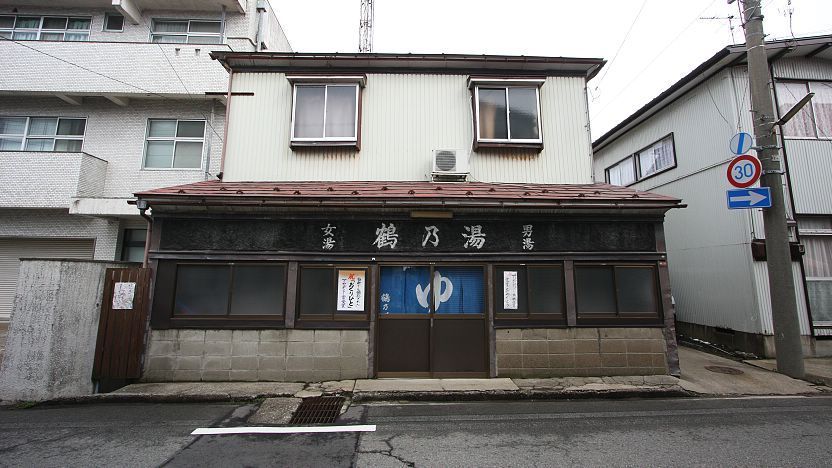 |
‧₊˚✧Drama Rec✧˚₊‧ ↪ Her Love Boils Bathwater (2016) |

Even though this subject is more relevant to K-pop, I want to talk about Japanese idols and how the culture surrounding them is a bit different. The term “idol” is said to have started to be used in Japan in the 1950s and 1960s. While watching dramas, I learned about the concept of underground idols. Even though they are still training, they give regular performances at small ventures and interact with fans. They aren't expected to be perfect when they start, but rather, fans support them as they grow and evolve as artists. That's the reward for most of the fans. Idols follow certain themes, and they need to be entertaining, if somewhat lacking in the singing or dancing parts. The term "Oshi" is used for them by their fans; it means “I like and support." Idol groups are rising throughout East Asian countries, but the place where I live has separate singers and dancers, so watching young folks enter tough competitions to become a part of groups with strict rules is different for me. The concept of idols as near-perfect figures for fans and the business behind it all are quite complex.
 |  |
‧₊˚✧Drama Rec✧˚₊‧ ↪ Dakara Watashi wa Oshimashita (2019) |
I first saw this in Rental no Koi (2017) and it was very new to me. I mean, it’s kind of everywhere in a subtle manner; you can hire people to act for you, but it’s flourishing in Japan with services that are super detailed and customizable. You can rent anyone, ranging from a relative to a partner. I then saw a few YouTube videos, and these service providers work on strong rules and charge according to demand. I found it both interesting and unusual because people sometimes don’t just want to show off but also experience relationships while knowing they are rented.
 |  |
‧₊˚✧Drama Rec✧˚₊‧ ↪ Kotaki Kyodai to Shikuhakku (2020) |

Tough competition among students is nothing new to me. My country is ruthless in college admissions, and then securing government service is even tougher. However, in Japan, they go a step further by conducting entrance exams for middle and high schools, plus it’s not easy, they say. The competition at such a young age, with classes after school, contemplating the future, and facing the harsh reality, seems daunting to me. Here, schools don’t discriminate based on academic performances; taking a stream after class 10 is, however, based on your marks. Japan's quality education involves layers that enhance a person's capacity, but it startled me because it starts from a very early age.
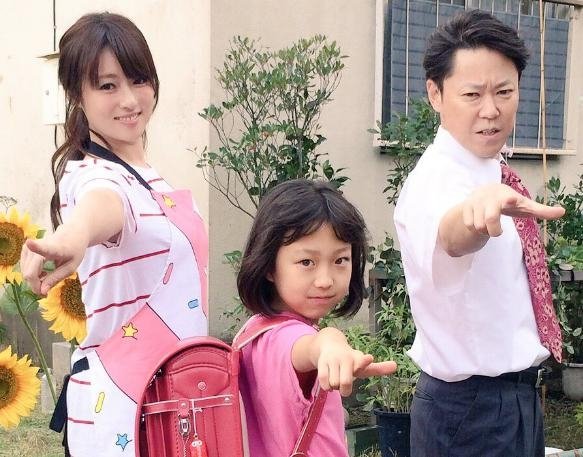 | 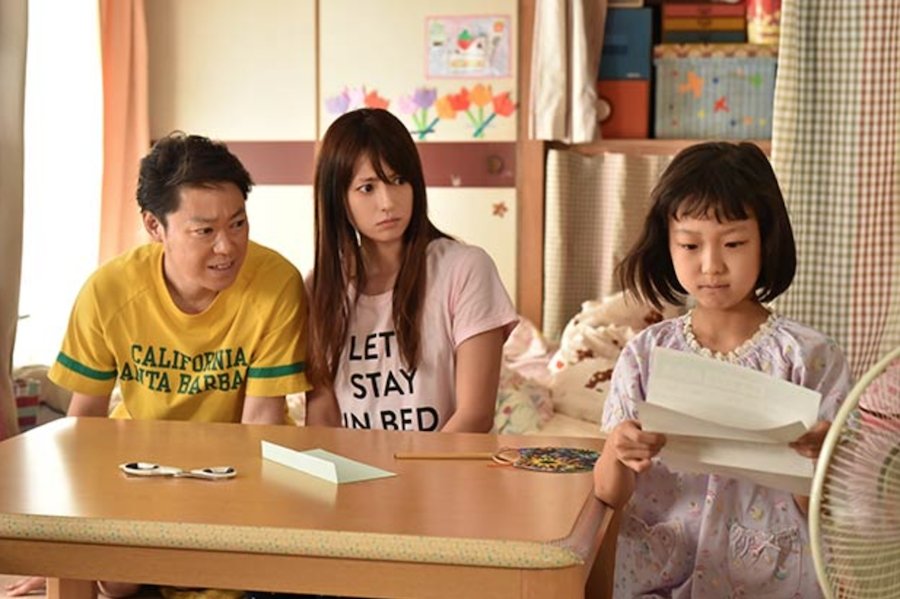 |
‧₊˚✧Drama Rec✧˚₊‧ ↪ Gekokujo Juken (2017) |
‧₊˚✧Bonus✧˚₊‧
I know chopsticks are like the most basic tool for eating throughout East Asia, and I shouldn't be shocked, but the incredible talent for using chopsticks—those two thin sticks—to eat just about anything, even the slippery little grains of rice, it’s like a special skill they've all mastered.
Now, for a fact, I know that the rice they eat is not what we eat here in India; it's typically sticky, making it easier to hold onto with chopsticks, but at first, I was so confused because eating grain by grain would take forever haha.
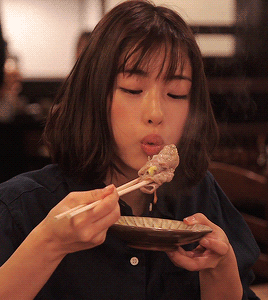 |  |
‧₊˚✧South Korea✧˚₊‧

The Chaebol system started in South Korea in the 1960s and involves large business groups that play a vital role in the economy. They contribute significantly to research and development investment and represent about half of the country's stock market value. Chaebols are generally controlled by their founding families, giving the families authority and power.
Strong family businesses are everywhere, and yes, money does have influence no matter what country. However, what caught my attention was the distinctiveness of this dynamic in Korea. Initially, the dramas I watched were mostly about rich CEOs and poor girls, and the clarity everybody had about how strong a Chaebol can be and the influence of these business conglomerates amazed me. In Korea, many leaders have linked the success of the Chaebol to the country's prosperity. The aura, the class, the status—everything about them was off-the-charts. In dramas, I saw how public figures like idols struggled for their image, yet Chaebols navigated a different kind of life while existing in the spotlight as well.
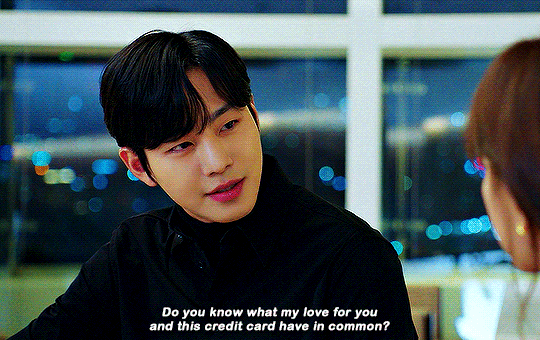 | 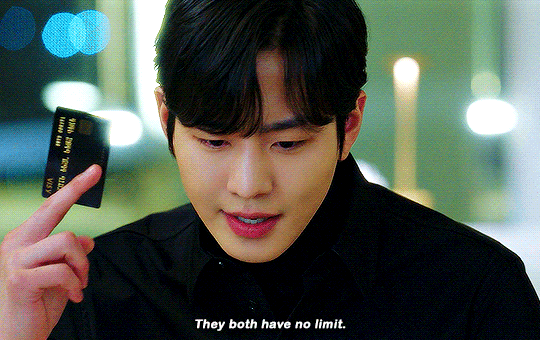 |
‧₊˚✧Drama Rec✧˚₊‧ ↪The Heirs (2013) |

Ah, where do I start? At first, I saw this in Boys Over Flowers and thought, okay, maybe it's an elite school; that's why the school provides them with an extravagant lunch, but as I watched a few more K-dramas, I realised that, omg, that's the case with almost all schools, and the food they serve is not something you take as a joke; it's a well-balanced meal every time, with high attention given to hygiene.
Why do you like this concept? Well, that's related to my personal experiences. The lunch box was always a luxury for me since my mother was a working woman. In primary school, I was forced to eat at the canteen. As a kid, I liked it a lot, but as I grew up, I started feeling jealous of those who brought home-made food. Also, I noticed that lunch boxes created social discord between students from various economic backgrounds. Those who brought nice meals were well liked, and some felt reluctant about opening their lunches. Also, when I reached high school, I started making my own lunches, but my mother wanted me to concentrate on studies, so she used to wake up extra early to prepare food for me, and sometimes my father used to make them. So having lunches in school helps parents who can't do it early in the morning, and if everyone has the same food, then a lot of things are resolved automatically.
 |  |

It baffled me when I watched Playful Kiss; dividing students based on grades is like a nightmare to me. With growing competition in India, we now have huge coaching centres, and countless students dedicate themselves to preparation, and they too have this marks-based section that is decided by the weekly tests they take. I see a lot of students losing their spirit because they start bright but exams put labels on them. Well, as per my experience here, the classes are designed in specific ways to suit students' pace of learning, and maybe that's the case in Korea as well, but it came as a shock to me because here in schools, sections are divided to accommodate a large number of students. It broke my heart when Oh Hani from Playful Kiss was called dumb multiple times by smarter students. On the brighter side, having a suitable environment can sometimes lead to healthy learning, plus competition helps some students achieve beyond expectations.
‧₊˚✧Drama Rec✧˚₊‧ ↪ Sassy Go Go (2015) |

The article Oppa, Gege, P' - Brother Or Something Else? perfectly describes the confusion I had when I first started watching Korean dramas. The female lead was referring to her biological brother as Oppa, and now her boyfriend wants her to call him Oppa, and I was so shocked at what was happening—why does he want to become her brother? But later, I understood that "Oppa" is someone who is older than you and whom you can rely on. While it is a sign of respect, it also showcases a close relationship.
‧₊˚✧China✧˚₊‧
China has a rich culture and initially I was surprised by all those super smart and technical gadgets they used, but I couldn't attain much detail just by watching dramas. Family values are similar to ours, but the lifestyle, cuisine, and education systems are very different, so this part is not about cultural shocks but the things I totally loved and want to exist here in my country as well.
↪ School Uniforms | ↪ College dorms |
 |  |
Omg, I love these uniforms. They seem super comfortable for both boys and girls, and I find them cool-looking. It also looks optimal for all kinds of weather and athlectic activities. | These dorms seem perfect; they've got a little corner for everyone with their unique design. I believe anyone who lived in these rooms must have had so many fun memories together. |
‧₊˚ ⋅ ୨ Repository ୧ ‧₊˚ ⋅ I have not taken any material from these resources; all the above information is written based on my experience, but if you like to read extensively, I found these articles close to my analysis. |
And that's all, everyone. Please share your fun stories in the comment box, as well as your unique cultural background. See you all next time!
Credits: All gifs/images/stickers are linked to their sources or taken from MDL. The self-made GIFs are taken from the drama scenes. | Edited by: devitto (1st editor) |



